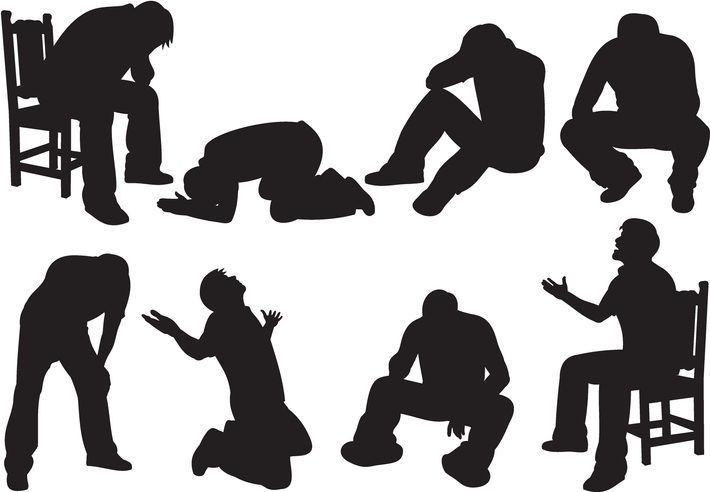Male Grief: What You Need to Know
The now famous book titled “Men Are from Mars, Women Are from Venus” truly brings home the point that men and women, for the most part, handle grief in drastically different ways. In movies and on television, mothers are sometimes depicted throwing themselves on a child’s coffin with the hope and desire to prevent or at least waylay burial. Yet in these pop culture venues, portrayal of male grief is vastly different. For instance, at his wife’s funeral, a newly widowed father holds a child’s hand and remains stoic without shedding a tear. But is this real life or escapism?
Understanding Male Grief
It sounds cliché, but when it comes to grief, women tend to be more demonstrative. They don’t mind showing their vulnerability. Women cry when their emotions take over and grief becomes overwhelming. On the other hand, many men feel the need to remain unflappable and put on a brave front. And there might be the problem. It is important to recognize what male grief looks like in all its forms. As each person is different, so too is the manner in which men grieve. Some men will become enraged. Others will cry, and then there will be another group who appears strong and stays active. All are perfectly fine reactions as long as feelings are not avoided at all costs.
At an early age, boys seem to take the signal from their elders and block pain behind a wall of silence. Dad is shattered by the sudden loss of his father but locks his feelings away and closes off his emotions. On the day of Grandpa’s funeral, the young grandson isn’t sure if it’s okay to cry because his dad is acting like he always does — a smile on his face as if nothing is wrong. Nevertheless deep down, the dad is experiencing the profound loss of his father, but he was taught real men don’t cry. Instead, he grieves in silence.
According to researchers, there is evidence that men grieve on their own and then use work and other activities to distract from their pain. Think about Steve Ensminger, LSU’s offensive coordinator, who chose to call the plays during Saturday’s semi-final college playoff game (Peach Bowl) mere hours after he learned of the tragic death of his daughter-in-law, Carley McCord, in a plane crash.
It isn’t surprising to learn that following a loss some men cope by using alcohol and adopting risk-taking behaviors to dull their emotions. They tend to have a smaller network of friends to lean on in their time of need as opposed to women, who rely on their female friends for support. (Picture the end of “Steel Magnolias” when Sally Field’s character, M’Lynn Eatenton, is grieving, and her friends are there to provide comfort in her hour of need.) And then there is the sad truth as Canetto and Cleary discovered: Men are more likely to commit suicide after a spouse’s death.
How to Help
Experiencing a loved one’s death can be one of the most difficult and painful chapters in any individual’s life. It is never a smart decision to suffer in silence and alone. Reaching out for help is a sign of strength.
However, until your male loved one comes to this decision, the following are some tips that can help:
Offer to be a sounding board. With a simple phone call, make the suggestion that you’d be happy to listen — no matter what feelings he might be experiencing. He can be assured that you will listen, offer support and not pass any judgment.
Assist in creating activities with time for reflection. A suggestion of going for a walk in the neighborhood or playing a round of tennis creates both an activity and the opportunity to ask how he’s doing.
Watch for warning signs. Some men repress their feelings and emotions, which can have repercussions down the line. But definitely keep an eye out for the following: withdrawal, depression, deterioration in relationships (family and friends), anxiety, and alcohol or drug abuse.
If the above suggestions are not helping, Chapters Health System is here with individual counseling and support groups. While many individuals participating in our community bereavement support groups have lost someone under care at any of our affiliates — Good Shepherd Hospice, HPH Hospice and LifePath Hospice — others have experienced a sudden or unexpected death. Bereavement support and services are offered at no charge.
At Chapters Health System and its affiliates—Good Shepherd Hospice, Hospice of Okeechobee, HPH Hospice and LifePath Hospice, every day is devoted to educating our patients and keeping them in the place they call home. We are dedicated to ensuring that patients, young and old alike, and their families are able to make educated decisions about important healthcare matters. For more information, please call our helpful Chapters Health team at 1.866.204.8611 or send an email to info@chaptershealth.org.
 About Phoebe Ochman
About Phoebe Ochman
Phoebe Ochman, Director of Corporate Communications for Chapters Health System, manages all content and communications for the not-for-profit organization.
Teach Your Children
In society, male grief is invisible and unwanted all too often. In order to break the cycle, start by teaching your children that it is okay for boys to share their feelings. Allow them to be true to themselves.
What can you do to change the outcome? As the Crosby, Stills and Nash song reminds us, “teach your children.”
Spiritual Insight
“If you have children, you one day will face the difficult task of telling them that a loved one has died,” said Father Christian Villagomeza, chaplain with LifePath Hospice. “Depending on the age, a child may ask all kinds of questions. Keep your answers as simple and honest as possible.”
Father Villagomeza suggested you don’t tell your son, “Grandma is sleeping.” He may be afraid to ever go to sleep again. And don’t tell say, “Grandpa is in heaven watching over him.”
While parents may find this image comforting, children may be terrified that Grandpa has become an ever-present spy. Remember, children need to resolve their own grief. They will take their cues from you, so give them permission to grieve by letting them see your grief. Don’t try to protect them from the grieving process. And by all means, take them to the funeral if they want to go. Keeping them away from the funeral may make them feel rejected.